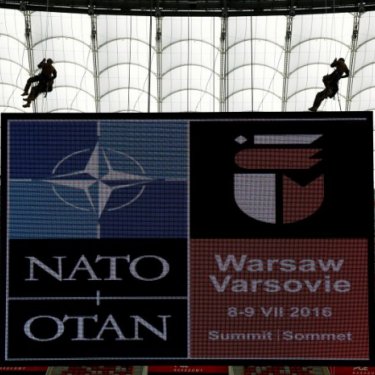RSF urges NATO to condition dialogue with Taliban

On the eve of a two-day NATO summit starting in Warsaw tomorrow, Reporters Without Borders (RSF) urges NATO’s members to do everything possible to protect
journalists and media freedom in Afghanistan and to refuse to negotiate with the Taliban as long as they do not undertake to respect humanitarian law as defined in
basic international treaties.
As the enemies of Afghan democracy and freedom of information intensify their war and their threats against media and journalists, RSF urges the Afghan government and the Atlantic Alliance to defend Afghanistan’s media and journalists in a clear and concrete manner.
RSF issues the same appeal to the European Union, which will be represented at the Warsaw summit by the president of the Council, the president of the Commission and the high representative for foreign affairs.
“At a time when the international community is wondering what strategy to adopt in Afghanistan, we urge NATO member countries to prioritize respect for media freedom,” RSF secretary-general Christophe Deloire said.
“We believe – and the experience of the past 15 years only confirms this – that peace, security and basic freedoms cannot be assured without independent media and guarantees for journalists’ safety. All negotiations and international aid must be conditioned on a policy favouring freedom of information and an undertaking to combat the impunity enjoyed by those responsible for abuses against journalists.”
Thanks to international aid and the efforts of Afghan journalists, the media have been able to develop in Afghanistan and freedom of information enjoys a degree of protection. Afghanistan now has eight news agencies, 48 TV channels, 160 radio stations and 190 publications (including dailies, weeklies, monthlies and those appearing at irregular intervals).
Nonetheless, the media have to confront the same problems that threaten the rest of Afghan society. The security, political, economic and (of late) constitutional crises have had serious consequences for the work of the media and journalists, whose role is crucial in defending peace and basic freedoms.
Journalists have paid a high price. At least 35 journalists have been killed in connection with their work in Afghanistan since 2001. They include 16 foreign journalists (four Germans, two Americans, two French, two Italians, two Swedes, one Australian, one Canadian, one Norwegian and one Briton).
Most of these journalists were killed by the Taliban and most of these deaths have gone unpunished. RSF has registered more than ten cases of violence against media and journalists in Afghanistan since the start of 2016.
The single deadliest attack on the media since the fall of the Taliban government in 2001 – the suicide bombing of a Kabura production company bus in Kabul on 20 January 2016 that killed seven Moby Group media workers – was typical of the Taliban policy of undermining peace and democracy.
The attack was clearly premeditated because Tolo TV and 1TV – Afghanistan’s two leading privately-owned TV channels – were named as “military targets” in a Taliban communiqué on 12 October 2015.
Signed by the “Islamic Emirate of Afghanistan’s Military Commission,” it said: “We henceforth regard Tolo TV and 1TV as military targets, not as news media (...) Nothing is safe from our attacks, neither personnel (presenter, reporters or crews) nor the building themselves.”
By leading the International Security Assistance Force (ISAF) in Afghanistan, NATO made a long-term commitment to the country’s stability. The goals of the successor mission, called “Resolute Support,” include securing the rule of law and combatting extremism.
However, civil society, human rights defenders and above all journalists have been undermined for the past three years by contradictory positions on negotiating with the Taliban.
The Taliban openly flout international law and humanitarian law by committing war crimes attested to by the UN and by attacking media outlets as military targets. Yet NATO countries accept the presence of a Taliban diplomatic office in Doha, the capital of Qatar, and in practice protect it. Most of its members are accused of crimes while they were officials in the 1996-2001 Taliban government.
RSF finds it unacceptable that NATO’s democratic members and the Afghan government do not condition all negotiations with the Taliban on an explicit prior commitment to respect to respect the basic international treaties of humanitarian law, starting with the Geneva Conventions.
RSF is also concerned that Afghan President Ashraf Ghani set no prior condition such as respect for international law and the Afghan constitution when he reiterated an appeal to the Taliban to negotiate yesterday.
Afghanistan’s recent history shows that it is impossible to build peace without justice. The violence against journalists is encouraged by the systematic impunity for those responsible for the violence. RSF points out that murders of journalists are not only crimes against freedom of expression but must also be treated as war crimes and, as such, must be punished severely.
L’Afghanistan est classé 120éme sur 180 dans le Classement mondial de la liberté de la presse 2016 établi par Reporters sans frontières.



